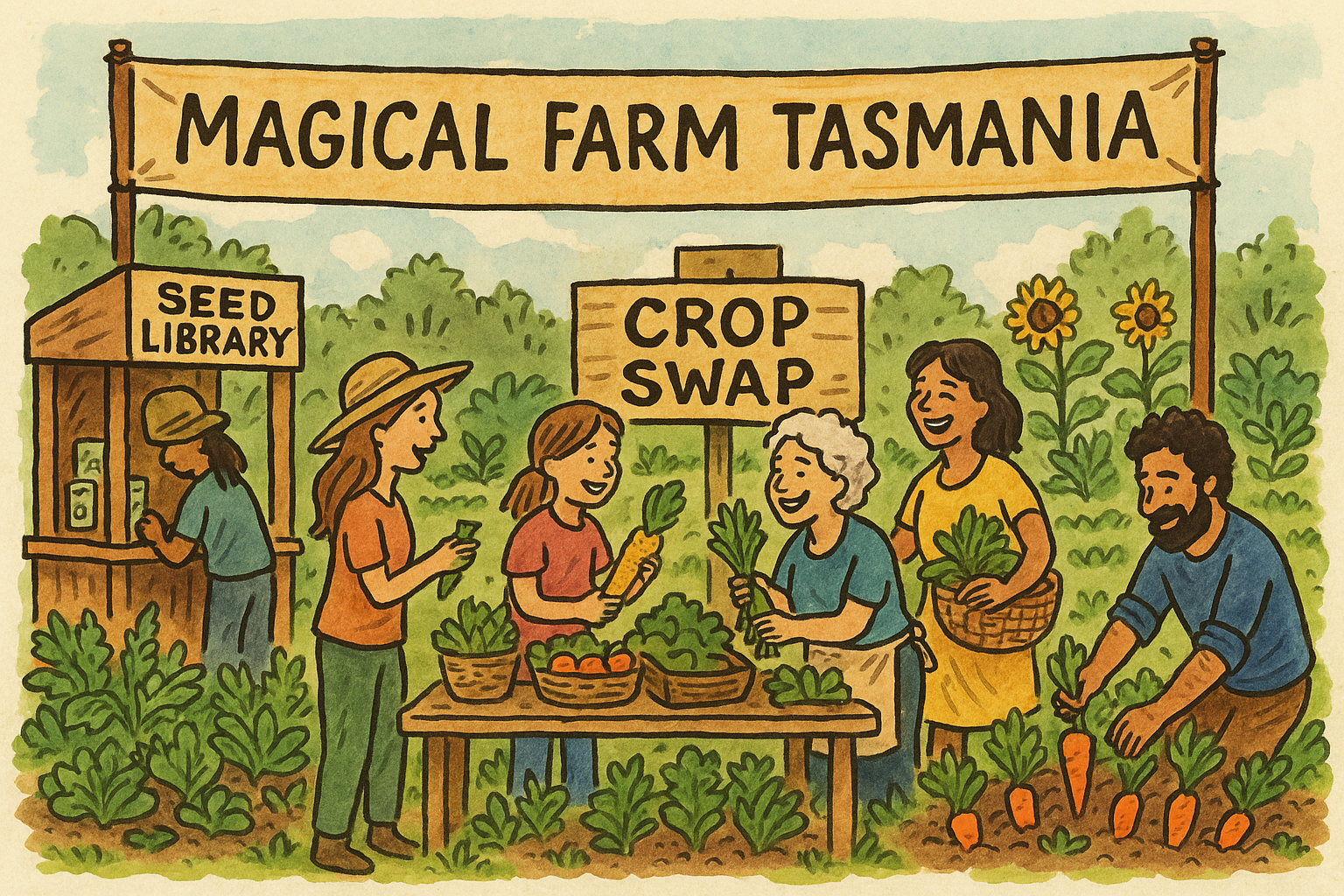“We weave ideas, scribe forward, align with life and create connection.”
— Dr Demeter | Emily Samuels-Ballantyne
Covering topics on Foundational Economics, Convivial Governance, Anthroposophic Philosophy & Everyday Regeneration in Tasmania
Overview
The Island Almanac is a living compendium of stories, tools and place-based examples that weave together foundational economics, anthroposophic wisdom and the rhythms of everyday life. Rooted in the soils of Tasmania and flowering from Magical Farm Tasmania. Across its pages you’ll find:
Practical essays on redirecting public and private wealth into community resilience
Anthroposophical reflections on seasonal rhythms, ritual and soul-led innovation
Tasmanian case studies from coastal hamlets to mountain valleys
Project spotlights on island-wide initiatives, from seed libraries to solar co-ops.
Living Architecture: A dynamic framework of interconnected practices, food, housing, energy, governance, culture, activism and economics that grows, adapts and breathes like an ecosystem, rather than standing as static policy or infrastructure. These seven pillars form the Living Architecture of Regen Era Design Studio & The Island Almanac: integrating heart, head & hands to power a truly regenerative future.
Food, Plants and Planets
Housing and Natural Building
Energy
Community Life, Learning & Culture
Sacred Activism
Convivial Governance
Regenerative Economic Design.
Who Counts As a Farmer? And why it matters for the future of our regions.
This piece by Dr Demeter (Emily Samuels-Ballantyne) explores the urgent need to redefine who counts as a farmer in Australia’s evolving agricultural landscape. It highlights how current government support programs like the Farm Household Allowance largely exclude small-scale, regenerative, and community-based farmers, many of whom are young people building resilient regional economies through diverse, place-based food systems. The article calls for policy reform that values ecological health, social wellbeing, and cultural vitality alongside traditional economic measures, urging recognition and support for the farmers shaping a reenerative future.



